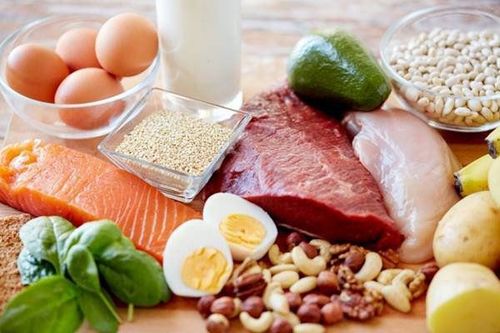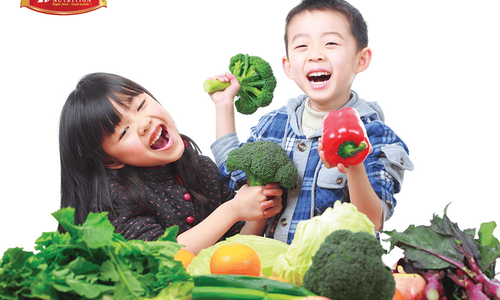This is an automatically translated article.
Weight is one of the important parameters to evaluate a child's development, so the child's weight and height is always a matter of special concern to many parents. So, for a 16-month-old baby weighing 9kg, has normal development?
1. How much does a 16-month-old baby weigh?
A healthy growing 16-month-old baby will be regularly active. They will constantly play, kick, walk or climb, maybe even run.
16-month-old babies continue to grow and make leaps and bounds in terms of weight and height. How much should a 16 month old baby weigh? According to the World Health Organization, the average weight of 16-month-old boys is 10.5 kg, while girls of the same age are 9.8 kg.
So 16-month-old babies weighing 9 kg are underweight than the standard mean. However, they are not considered malnourished. The milestones of 7.8 kg in 16-month-old girls and 8.5 kg in 16-month-old boys are alarming values for a low birth weight child.
2. Other developmental milestones of a 16-month-old baby
In addition to growth in weight and height, a 16-month-old baby achieves several notable milestones:
Walking. Most 16-month-olds walk well, which is the beginning of the next steps such as climbing, running, walking backwards, and dancing to music. Stated. About half of toddlers this age are saying at least three words, and some especially can say 15 words or more. Teethe . As early as 16 months of age, a baby's canines — the third bottom tooth from the front — can begin to erupt. Toilet habit. You can continue to patiently instruct your child about potty training. Children may begin to notice this habit or even actively ask to sit on the potty. Conversely, if the child is not interested or refuses to perform, parents should not be too worried. A medical study shows that starting potty training between 27 and 32 months is ideal.
3. Health status of 16-month-old children
Toddlers like 16 months old are often exposed to bacteria and some foreign microorganisms from the outside environment. Changing your diet with new foods and drinks can also lead to some digestive problems. Frequently asked questions about the health of a 16-month-old child are:
High fever, convulsions, Diarrhea, digestive disorders Constipation When having any health problems, parents should take their child to see a specialist. clinic for timely examination and treatment, absolutely do not self-treat at home.

Có nhiều yếu tố ảnh hưởng tới vấn đề bé 16 tháng nặng 9kg như sốt cao
4. Sleep for 16-month-old babies
Sleep plays an important role in the growth of a child's height and weight. Children 1 to 2 years old need a total of 11 to 14 hours of sleep each day. At 16 months, babies may begin to transition to just taking one nap a day, so your baby's daily routine can also be rearranged a bit. Typically, a 16-month-old will fall asleep at times such as a morning nap, a longer nap, and a slightly earlier bedtime. The duration of each sleep can be extended to ensure a sufficient 11 to 14 hours per day.
In the 30 minutes before bedtime, follow the exact same steps in the correct order and give a 20-minute warning that the child needs to go to sleep. This measure helps the child's body gradually adapt to bedtime, making it easier for the child to fall asleep.
5. Food for 16-month-old babies
How should a 16-month-old child eat to reach the right weight? Your 16-month-old should eat three meals and two snacks a day. Doctors say most toddlers need about 1,000 calories a day, or about 40 calories for every inch of their height.
Some foods help to gain weight in 16-month-old babies:
Potatoes: Potatoes contain carbs that convert into glucose, which is used by the body for energy. Any glucose that cannot be used by the body is converted into fat, which helps the child gain weight. Potatoes are a rich source of substances such as carbohydrates, amino acids and fiber, which help children gain weight in a healthy way. In addition, potatoes taste great and are a favorite among children. Parents can mash potatoes so that their 16-month-old babies can easily digest them. Instead of potatoes, parents can also choose sweet potatoes with similar benefits. From sweet potato cakes to nutritious sweet potato soup, choose according to your child's preferences. Sweet potatoes can help children gain weight well remember to be a rich source of starch. Eggs: Eggs are known to be a food rich in protein, vitamins and healthy fats. They are the most sought after healthy foods when it comes to weight gain. In addition to adding calories for children, eggs also help the important development of the brain and nervous system. Bananas: Bananas are the fastest source of energy and are packed with healthy carbohydrates. On average, a banana has about 105 calories, making it the go-to snack for most people and even for 16-month-old babies. In addition, bananas are also a food that is easy to process into many other attractive dishes such as banana milk, fruit salad, and ice cream instead of just eaten directly. Dairy products for kids: Basic products like milk, cheese, and butter are staples in any child's diet. Milk contains a good amount of calcium, which helps build strong bones and keep the baby's overall health in check. Make sure you give your child at least two glasses of milk a day to reach your weight gain goal. Instead of giving them whole milk, parents should diversify by offering them nut milks or cereals. The healthy fats that come from avocados are also a useful solution to help your baby gain weight. Chicken and other lean meats: Chicken is known to be a rich source of protein, which helps build muscle in the body. Chicken can make your kid gain weight without looking too chubby or chubby. The great advantage of chicken is that it is very easy to cook and is the favorite food of most children. Cereals: This is one of the healthiest foods to gain weight for kids. Whole grains are not only packed with important nutrients but are also packed with fiber and will help increase the amount of calories needed by the entire body. In addition, they are known for increasing the immunity of children. Whole grains can be mixed together to puree to form a powder and used with milk or used directly. Oats: In addition to helping kids gain weight, oats have countless other nutritional benefits. Due to their rich fiber content, oats have the ability to support the functioning of the digestive system and prevent constipation. Oats are also one of the best foods high in iron, zinc, magnesium and thiamine.

Một số loại thực phẩm tốt cho bé 16 tháng tuổi nặng 9kg
Parents also need to note that at this stage, the baby needs to add the necessary micronutrients: Zinc, selenium, chromium, vitamins B1 and B6, vitamin C,... to improve taste, eat well, reach the afternoon. Tall and healthy weight and standard, good immune system, enhanced resistance to less sickness and less digestive problems.
For more nutritional knowledge and child care for each age, parents should regularly visit the website vimec.com and make an appointment with the leading doctors, pediatric and nutrition experts of the National General Hospital. Vinmec when needing advice on children's health.













